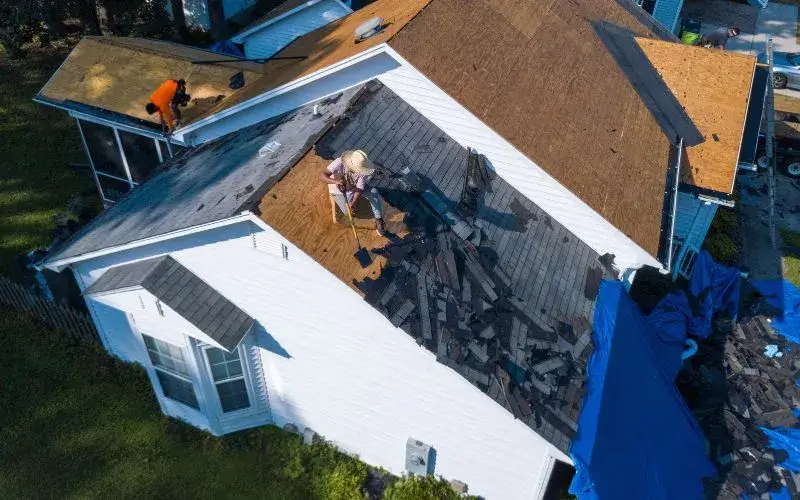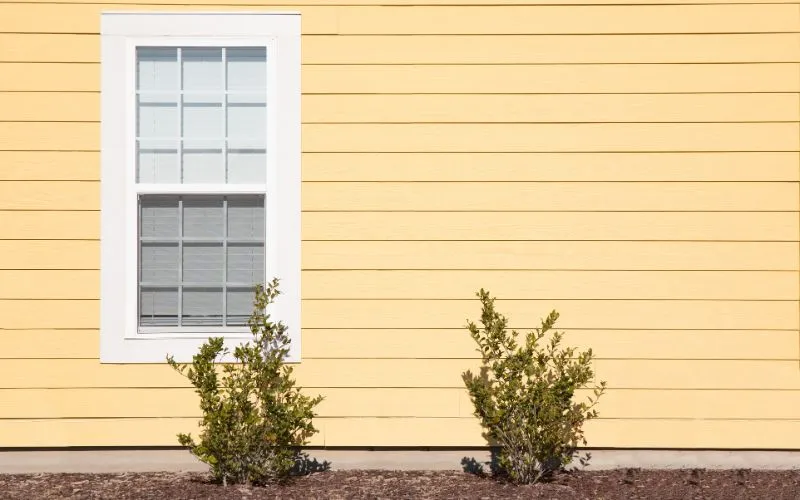How Long Does a Metal Roof Last?

Are you considering getting a metal roof for your home but unsure how long it will last? Metal roofs outperform other counterparts like asphalt shingles and give you decades of reliable protection.
So, just how long does a metal roof last? Find out below!
Factors That Influence The Lifespan Of Metal Roofs
Even though metal roofs are known for their durability, you should still look out for the following factors that can influence their lifespan:
- Metal Roof Material: Copper and zinc tend to have the longest lifespans, but steel and aluminum metal roofs still offer long-lasting protection.
- Installation Quality: Choosing an experienced metal roofing contractor and ensuring proper installation is essential for maximizing your roof's lifespan. A low-quality installation won't cut it.
- Climate and Weather: Harsh weather conditions, such as extreme temperature fluctuations and hail, can cause additional wear over time on a metal roof.
- Maintenance: Metal roofs don't require heavy maintenance, but regular inspections and minor repairs can extend the life of your roof significantly.

Metal Roof Lifespan Based On Material
As mentioned previously, the longevity of a metal roof also depends on the type of material used. Here are the four most common metal roof materials used, along with their average life expectancy:
- Steel Metal Roofs: 40-70 years
- Aluminum Metal Roofs: 50-70 years
- Zinc Metal Roofs: 80-100 years
- Copper Metal Roofs: 100+ years

Is Getting A Metal Roof The Right Investment For You?
If you prioritize longevity and are looking for a modern roofing solution, a standing seam metal roof is an excellent choice. Compared to asphalt shingles, investing in a metal roof can be a cost-effective and worry-free solution.
However, it's important to weigh the following:
- Initial Cost: The upfront investment in a metal roof can be higher than other roof materials.
- Aesthetics: While the range of color and style options is expanding, the aesthetics of a metal roof might not favor all homes.
- Noise: Metal roofs can be slightly noisier in heavy rain, although proper installation methods and underlayment can help with soundproofing.
Remember: Metal roofs are often known as a long-term investment for homeowners. The upfront cost of a metal roof may be higher than something like asphalt shingles, but don't forget to take into account the remarkable longevity, reduced maintenance needs, potential energy savings, and the peace of mind that comes with a roof designed to last for decades.

Unsure If A Metal Roof Is Right For Your Home?
Getting expert advice from a roofer who specializes in metal roofing is a wise move when considering a metal roof. A reputable roofing contractor can:
- Recommend the best metal type for your climate and home.
- Help you understand the cost estimate and explore possible financing options.
- Ensure proper installation to maximize your metal roof's life expectancy.
- Help you with filing a roof insurance claim if needed.
Experienced roofers stay up-to-date on the latest metal roofing trends, products, techniques, and local building codes. They can guide you through options you may know of and ensure your roof meets all necessary regulations.

Debunking Metal Roof Myths
While metal roofs offer superior durability and numerous benefits, several misconceptions about them still persist out there. Let's clear up some of the most common myths:
Myth 1: Metal roofs are noisy during rain.
- Reality: Modern metal roofing systems are designed for noise reduction. Plus, when installed correctly over proper underlayment and with attic insulation, they can be comparable in noise level to traditional asphalt shingles.
Myth 2: Metal roofs will attract lightning.
- Reality: Metal roofs are no more likely to attract lightning than any other roofing material. If lightning strikes your home, a metal roof can help dissipate the energy safely through the structure.
Myth 3: Metal roofs dent easily from hail.
- Reality: High-quality metal roofs are surprisingly dent-resistant. They are often manufactured to withstand severe hailstorms and come with various impact resistance ratings, so be sure to check with your manufacturer.
Myth 4: Metal roofs make your home hotter.
- Reality: The opposite is true. Metal roofs effectively reflect solar radiation, keeping your attic cooler in the summer and reducing the energy needed to cool your home. In addition, proper ventilation also plays a crucial role in maintaining a comfortable indoor temperature.
Myth 5: Metal roofs are only for barns and industrial buildings.
- Reality: Today's metal roofing options are endless! They come in various colors, textures, and profiles, including styles that mimic traditional shingles, slate, or even wood. Some homeowners even pair standing seam metal roofs with asphalt shingles, which look fantastic.
Remember: Choosing a reputable contractor and ensuring proper installation is crucial for minimizing noise and maximizing the performance of your metal roof.

FAQs
Are metal roofs more expensive than other roofing options?
Yes, metal roofs are typically more expensive than other roofing types, like asphalt shingles, but their lifespan and reduced maintenance costs can offset that over time.
Are metal roofs noisy?
Yes, metal roofs can be slightly noisier during heavy rain than most other roofing materials, but proper installation, underlayment, and insulation can help with soundproofing.
Will a metal roof fade over time?
High-quality metal roofs have coatings to resist fading for several years, but fading is inevitable on metal roofs, and eventually, they may experience some slight fading over the decades.
Do metal roofs require special maintenance?
No, minimal maintenance is one of the benefits of metal roofs. However, regular inspections to check for any signs of wear or damage are recommended!

Conclusion
If you're looking for a roofing solution that's built to last (40-70 years) and requires minimal maintenance, a metal roof is a great option. While the initial investment may be higher, the potential for long-term savings, increased property value, and peace of mind make metal roofs worth strong consideration for your home.



.webp)


